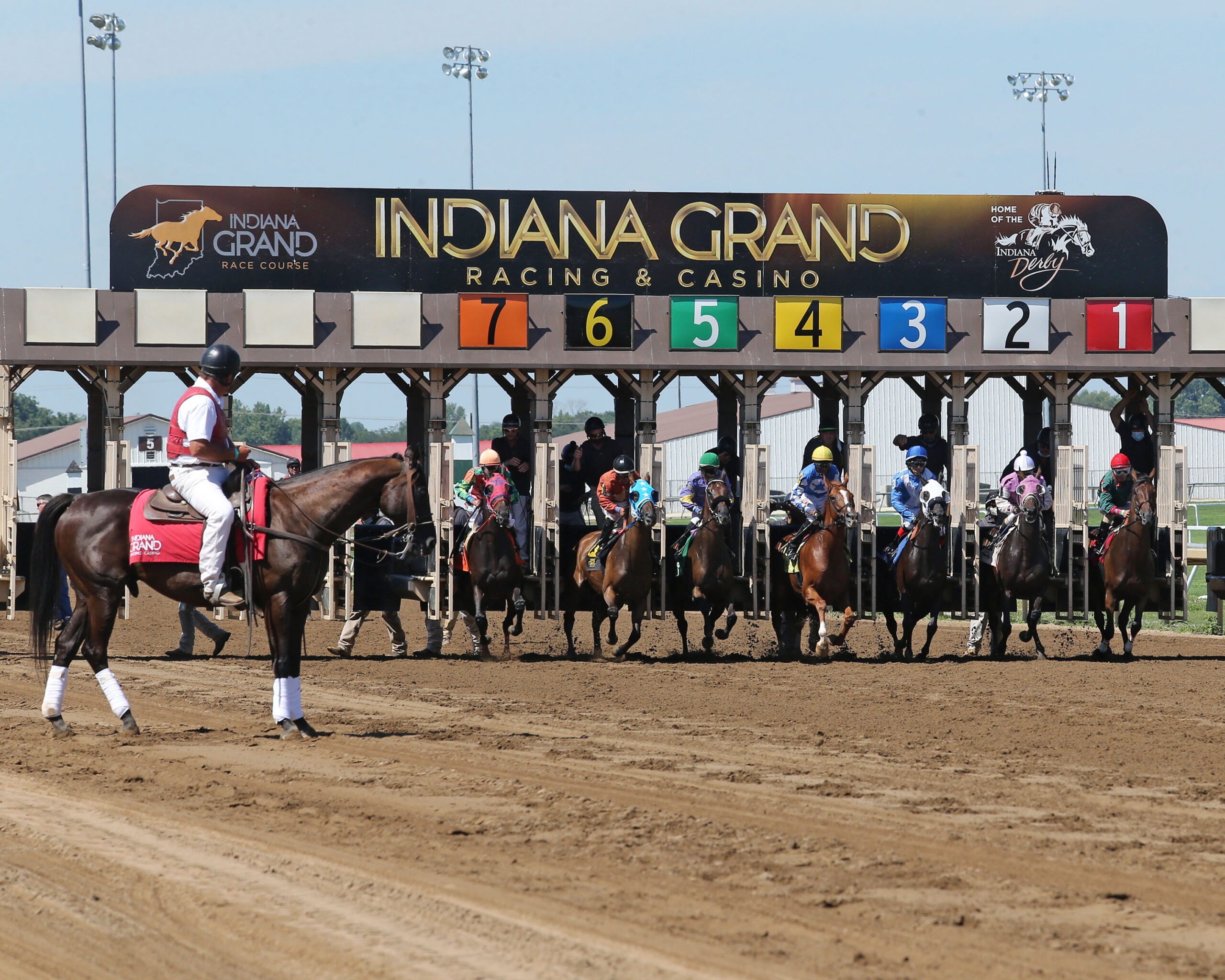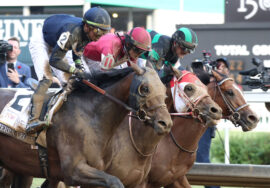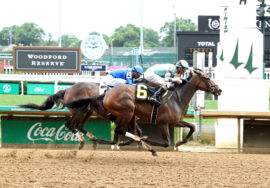
KY horsemen: Please note Indiana’s 2021 regulatory changes
(Coady Photography photo above)
The Indiana HBPA wants to make sure Kentucky horsemen are aware of 2021 Indiana regulatory changes. Please be advised that Indiana’s regulations involving running on Lasix have not changed. You can run horses on Lasix that has been administered no closer than four hours before post time.
New 2021 Indiana Horse Racing Commission Regulations
- 71 IAC 6.5-1-1 Voided Claim Rule:
- If a horse suffers a fatality during the running of a race, or is euthanized on the racetrack
following the race, any claim is submitted on that horse will be declared void. - If a claimed horse is vanned off the racetrack following the race (at the discretion of a
commission approved veterinarian), that horse will be transported to the test barn. The successful claimant or trainer may request the claim be voided by the stewards within (1) hour of the official off time of the race, except that that claim shall not be void if the horse is vanned off the track due to an issue that is not related to lameness as determined by the commission approved veterinarian. In the event the claim is voided by the stewards, the horse will be returned to the custody of the original owner.
- If a horse suffers a fatality during the running of a race, or is euthanized on the racetrack
- 71 IAC 7.5-4-1 240 Day Layoff / 4yo and Older First Time Starter: A horse that has not started for a period of 240 days or more, or a first-time starter that has reached the age of four (4) years, shall be ineligible to start until it has completed the following:
a. Successful completion of racing soundness examination, official work of not less than 4F, and post-biological sample administered by the regulatory or track veterinarian.
- 71 IAC 8.5-1-2.1 Clenbuterol prohibited in Quarter Horses
- 71 IAC 8.5-1-2.4 Clenbuterol prohibited in Thoroughbred horses entered to race:
No Thoroughbred participating in a race shall carry in its body clenbuterol.
-
- In the event a sample (pre-race, post-race, or out of competition) from a Thoroughbred
results in a finding of clenbuterol, the Thoroughbred shall be placed on the
veterinarian’s list. - 71 IAC 8.5-8-1.3 Clenbuterol in Thoroughbreds, conditions for use, reporting, and
veterinarian’s list requirements:- Conditions for use: A licensed veterinarian has issued a prescription for a
specific horse based a specific diagnosis. - Treatment must be reported, on commission approved form, to the track
veterinarian within 24 hours of treatment. - A horse administered clenbuterol shall be placed on the veterinarian’s list and
shall not removed from the list until condition(s) list below are met:- Official timed work under the supervision of the regulatory or track
veterinarian. - Submitted post-biological sample free of detectable clenbuterol.
- Official timed work under the supervision of the regulatory or track
- If clenbuterol is detected in a pre-race, post-race, or out-of-competition sample the horse will be placed on the veterinarian’s list and must meet the above guidelines for removal.
- Conditions for use: A licensed veterinarian has issued a prescription for a
- In the event a sample (pre-race, post-race, or out of competition) from a Thoroughbred
- 71 IAC 8.5-1-4.1 Non-steroidal anti-inflammatory drugs (NSAIDs)
- NSAIDS shall not be administered to any horse that is entered to race within forty-eight (48) hours of the scheduled post-time of the race in which it is entered.
- See rule in entirety for NSAIDs stacking violation(s)
- 71 IAC 8.5-1-4.5 Corticosteroids, stacking violations, and intra-articular injection restrictions
a. Any horse treated by corticosteroid intra-articular (IA) injection shall be placed on the
veterinarian’s list for fourteen (14) days.
b. The treating veterinarian must report such treatment to the regulatory veterinarian within twenty-four (24) hours of treatment on a commission approved form.
7. 71 IAC 8.5-5-2 Prohibited practices
a. Any horse treated with extracorporeal shock wave therapy (ESWT) must be reported by
the treating veterinarian within twenty-four (24) hours of treatment to the regulatory
veterinarian and placed on the veterinarian’s list for 10 days.
b. Any treated horse shall not be permitted to race or breeze for a minimum of ten (10) days.












